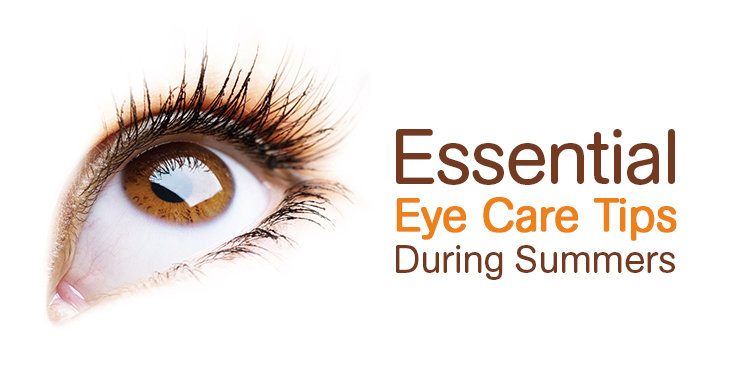Professional Neurologist Andalusia: Comprehensive Mind Health Services
Professional Neurologist Andalusia: Comprehensive Mind Health Services
Blog Article
Is Refractive Surgical Treatment Right for You? Variables to Think About for Better Eyecare
In the realm of eye care, the decision to undergo refractive surgical treatment is a crucial one that demands thoughtful factor to consider. From the complexities of one's ocular health to the details of daily habits and personal assumptions, each aspect holds significance in the broader landscape of refractive surgical treatment candidacy.
Eye Health And Wellness Assessment
When thinking about refractive surgical treatment, an extensive eye wellness examination is essential to analyze the viability of the treatment for each and every individual. eye center andalusia. This examination involves a series of examinations and tests carried out by an eye treatment expert to figure out the overall wellness of the eyes, the presence of any kind of underlying problems, and the security of the refractive mistake
Throughout the examination, different aspects are taken into account, such as the individual's medical background, existing eye prescription, corneal thickness, student dimension, and tear film quality. These assessments assist to determine any kind of contraindications to refractive surgical procedure, such as corneal abnormalities, cataracts, or neglected eye infections. Additionally, the evaluation assists to handle patient expectations relating to the prospective outcomes of the surgical procedure based on their one-of-a-kind eye features.
Eventually, the eye health and wellness assessment is crucial in making certain the safety and security and effectiveness of refractive surgical treatment, as it supplies important understandings into the person's eye wellness status and helps establish one of the most appropriate therapy choices for accomplishing optimal aesthetic outcomes. (cardiologist andalusia)
Lifestyle Assessment
A detailed way of life assessment is important in determining the suitability of refractive surgery for a person's visual correction demands. Lifestyle variables such as occupation, hobbies, and day-to-day tasks play an essential function in the decision-making procedure relating to refractive surgical treatment.
Moreover, way of life behaviors such as sporting activities participation, outdoor activities, or even skincare routines can influence the healing procedure and total success of refractive surgery. By performing a comprehensive way of living analysis, eye treatment specialists can tailor their referrals and therapy strategies to satisfy the one-of-a-kind demands of each individual, inevitably leading to improved visual results and fulfillment.
Assumption Placement

Setting sensible assumptions involves extensive pre-operative discussions in between the ophthalmologist and the person. The specialist should transparently interact the potential risks, benefits, and limitations of the treatment (cardiologist andalusia). a fantastic read Patients need to understand that this page while lots of people achieve 20/20 vision or better adhering to refractive surgery, some might still require glasses for specific activities like reading or driving at evening. Handling these assumptions aids prevent frustration and discontentment post-surgery, leading to an extra positive general experience for the individual.
Threat Evaluation

Aspects that might enhance the threat of complications consist of age, particular medical problems like autoimmune illness, unpredictable vision prescription, slim corneas, and impractical individual assumptions. Furthermore, picking a knowledgeable and knowledgeable specialist, following pre and post-operative care directions carefully, and revealing any type of pertinent case history can assist minimize risks.
To decrease the likelihood of problems, ophthalmologists conduct extensive pre-operative examinations to recognize any type of contraindications to surgical procedure. They also go over the potential risks and advantages with clients during the appointment process. By engaging in open interaction and shared decision-making, both the patient and the eye doctor can interact to identify if refractive surgical treatment is the best choice based on private risk profiles and preferred outcomes.
Assessment Value
Considering the essential function of educated decision-making in analyzing dangers and prospective problems in refractive surgery, the appointment procedure holds significant importance in leading patients towards optimal end results. Throughout the examination, the ophthalmologist examines the patient's eye wellness, refractive mistakes, and total viability for surgery. This first analysis is important in identifying one of the most appropriate procedure for each person, considering elements such as corneal thickness, student dimension, and existing eye problems.
Furthermore, the appointment works as a possibility for patients to discuss their expectations, problems, and any type of concerns they might have pertaining to the surgical treatment. Clear communication between the specialist and the patient is necessary to make certain sensible assumptions and a detailed understanding of the possible risks and benefits involved.
Additionally, the examination permits the doctor to describe the various medical alternatives available, their corresponding outcomes, and the post-operative care called for. This extensive conversation equips clients to make well-informed choices concerning their eye treatment, resulting in much better satisfaction and end results post-surgery.
Final Thought
In conclusion, people considering refractive surgical procedure should go through a comprehensive eye wellness examination, examine their way of living routines, straighten their expectations with potential end results, examine the connected risks, and focus on examinations with eye treatment experts. These variables play a vital role in figuring out the viability of refractive surgical treatment for every person, making sure optimal results and complete satisfaction with the treatment.
Clients taking into consideration refractive surgical procedure often have high expectations regarding the end results, expecting perfect vision without the need for glasses or get in touch with lenses. While refractive surgical treatment can significantly enhance vision and decrease reliance on aesthetic help, it is vital for patients to useful source comprehend that results might differ based on specific elements such as the degree of refractive error, corneal thickness, and total eye health.
By engaging in open communication and shared decision-making, both the eye doctor and the client can function together to determine if refractive surgical procedure is the right option based on specific threat accounts and desired end results.
Taking into consideration the crucial role of notified decision-making in analyzing risks and prospective complications in refractive surgical procedure, the consultation procedure holds substantial value in guiding patients in the direction of optimum results. During the assessment, the eye doctor evaluates the individual's eye health and wellness, refractive mistakes, and overall suitability for surgical treatment.
Report this page